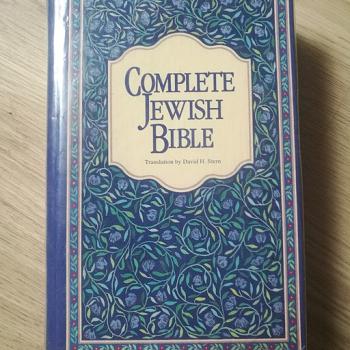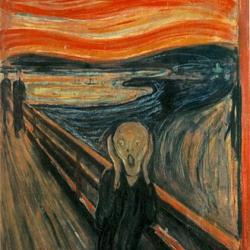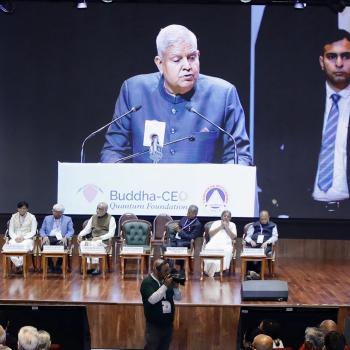The present column's subject at this juncture is likely to be one that many people vehemently disagree with me on. And many of those who disagree will be people whose work I enjoy, whose views I respect, and whose beings I love, and who (needless to say) I know personally. I don't mean this to be offensive toward them in any manner; I am merely seeking to nuance a certain term's usage, and to inject what I think is a needed critical note into a usage that doesn't get as much attention or questioning as I think it deserves.
Let me start by narrating the first time I heard the word "indigenous." It was my ninth grade honors English class, during which we had weekly vocabulary lists of SAT-likely words (ten of them), which we were given on Monday, had to write definitions and sentences on by Tuesday, and then studied for the rest of the week. So in our quiz on Friday, we could spell them correctly, define them correctly, and use them correctly in a sentence. And yes, this was a public school, in the early nineties. (How things have changed, alas...)
One week, we were given the word "indigenous." When some people were not quite getting what the word meant, my wonderful teacher said, "As an example, [Lupus] is indigenous to Oak Harbor." Being that Oak Harbor was (and still is) a Navy town, most of the residents and thus most of the students at the school were not born in the vicinity, nor had they lived there for their entire lives. About half the class used as their sentence for the word "indigenous" that week, "[Lupus] is indigenous to Oak Harbor"! So, strangely enough, in my first exposure to the term "indigenous," it was something that was connected to me in a public and even exemplary way, whether I liked it or not.
As time went on, I learned that it had a particular valence much greater than "being from someplace," although that was always an important part of it. I eventually encountered it where most people these days do: in discussions of Native Americans (both North and South America included), Aboriginal Australians, various African and Asian populations, and even some of the population groups of modern Europe, like the Sámi or Basque peoples. To be "indigenous" in these contexts doesn't just mean "being from somewhere," it means having a way of life connected to a particular location for thousands of years.
In religious studies, polytheist and animist religions are now often taught under the rubric of "indigenous religions." It's no longer politically correct to say "primitive religions," even though a generation or so ago, that's what any Native American, Pacific Islander, or ancient European religion (if the latter was acknowledged at all in such education, which they tend not to be) would have been called without question. It's an unfortunate catch-all term, but it is preferable to many alternatives.
And, as time went on again, I found out that there are also many further connotations to the word and to what it can indicate socially. Modern industrialized nations are often populated by individuals whose ancestors colonized other parts of the world; that's certainly the case for North and South America, Australia, and parts of Africa and Asia. The peoples who were indigenous to those areas before colonial incursions may still exist there, but often as minority populations, and they are often severely marginalized, economically disenfranchised, and discriminated against politically and religiously, amongst a variety of other social injustices. Because modern industrialized populations have been under a religious hegemony that assumes a transcendent deity is "everywhere" and thus where you are isn't important and thus one's relationship to a particular piece of land isn't important, far too often non-indigenous peoples don't understand why some places are holy or significant for a certain culture, why those populations can't "get on with life" somewhere else, and so forth. It has been happening for centuries, and it's happening to this very day in the U.S. in a variety of locations in recent news (including the Lakota and the Winnemem Wintu within the last few months, innumerable further instances in previous years, and still ongoing).
Being that this is the case, I was surprised and astonished that certain modern Pagans, particularly during and after the 2009 Parliament of the World's Religions, began referring to some modern forms of Paganism as "indigenous," while others were not, when in many cases the majority of people practicing the supposedly "indigenous" forms of Paganism did not live on the land where the traditions originated.
Now, we run into a series of problems with the terminology in these cases, I think.





